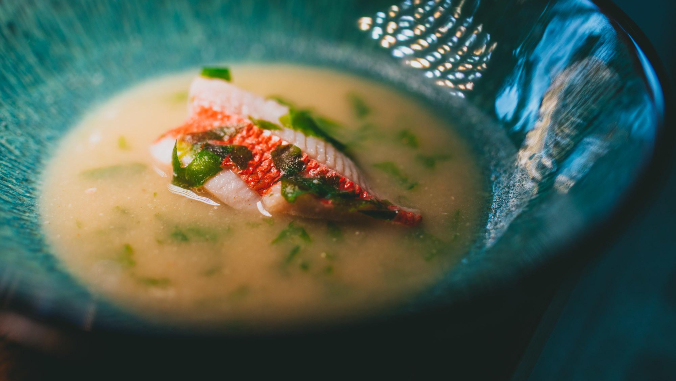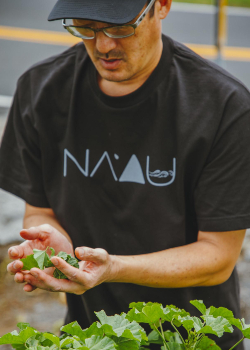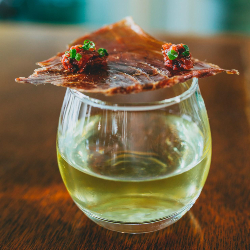
After learning that majority of his students don’t have knowledge of Native Hawaiian and Hawaiʻi food culture, Hawaiʻi Community College Culinary Arts Instructor and alumni Brian Hirata was inspired to establish a series of pop-up dinners in 2019, aimed at “preserving Hawaiʻi‘s food culture while progressing the local cuisine.”


Named Naʻau, this project has sparked major interest in worldwide media during the past year, demonstrating the uniqueness of the concept and the appetite for celebrating often-overlooked foods that can be raised, foraged, fished and hunted in Hawaiʻi.
Hirata’s vision, combined with his culinary talent honed working for the renowned chef and Kapiʻolani CC culinary program graduate Alan Wong, leads to creations as unique as Hawaiʻi Island itself.
“The menu for this dinner is littered with wild and oft-neglected local ingredients: cold-smoked mū (bigeye emperor fish) with limu ʻeleʻele (edible seaweed), pastrami made from Maui-grown venison heart, fresh ehu (short-tail red snapper) paired with sea cucumber harvested by Hirata the night before,” wrote Hawaiʻi Magazine. “He even serves the swim bladder of an ʻahi—something that’s almost always discarded—grilled and plated with a tomato-based tinono sauce.”
As the pop-ups have gained popularity, Hirata is working on the next steps to train a new generation of chefs to deeply understand local food and cultural resources, and to take that knowledge with them into their careers. In addition to perpetuating the cultural food knowledge, it could give them an advantage when they enter the workforce.
“That’s my long-term goal for this—is having these graduate students come in and filter through Naʻau and learn cultural food knowledge and how to cook with these ingredients at a high level,” Hirata said. “And they don’t have to apply the same ingredients [to their careers], but at least it’s being passed down rather than forgotten and lost, and could potentially keep this food culture here alive.”
Read the full story at Hawaiʻi CC’s website.

